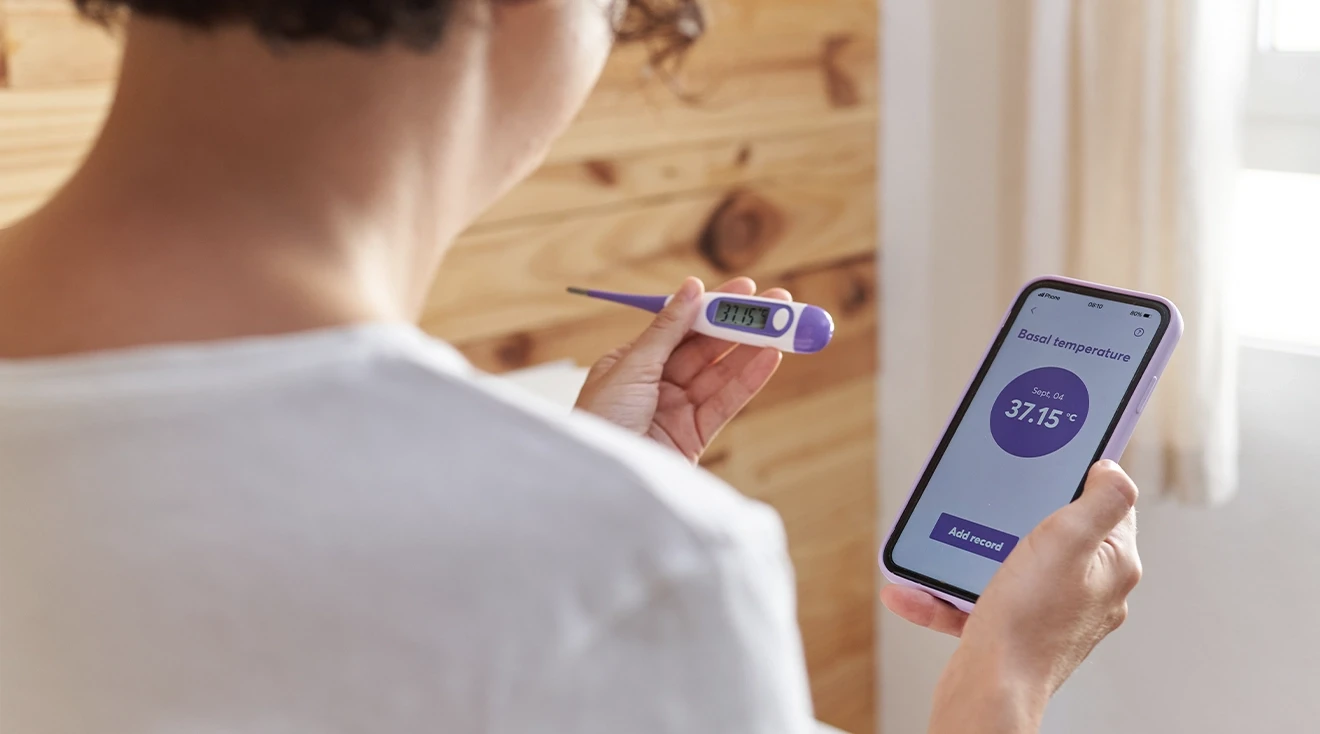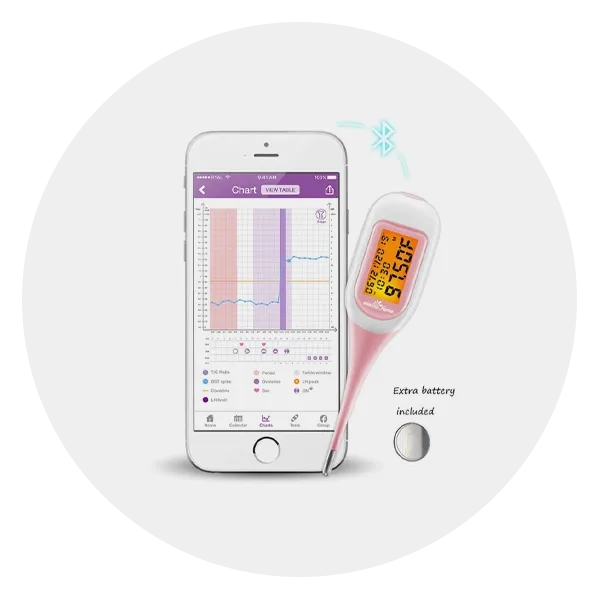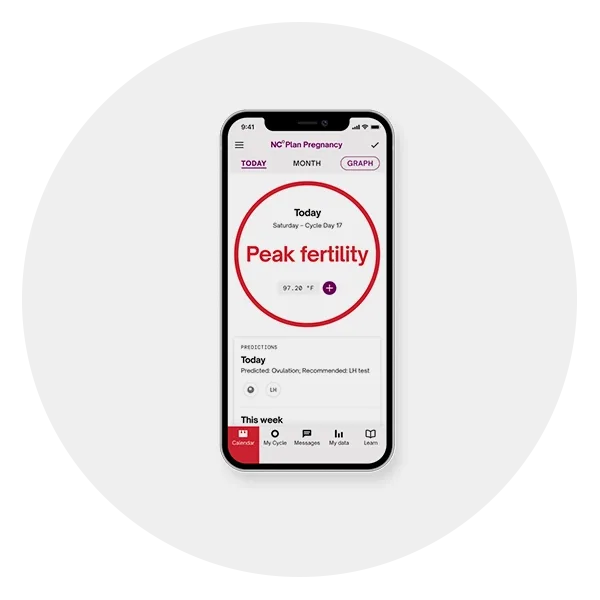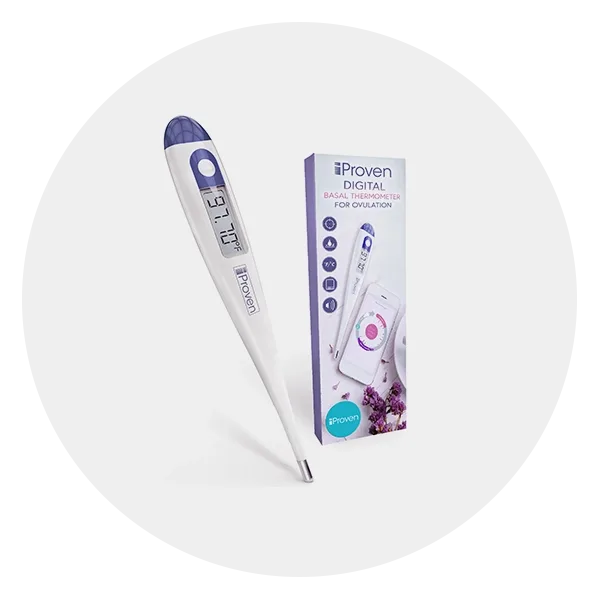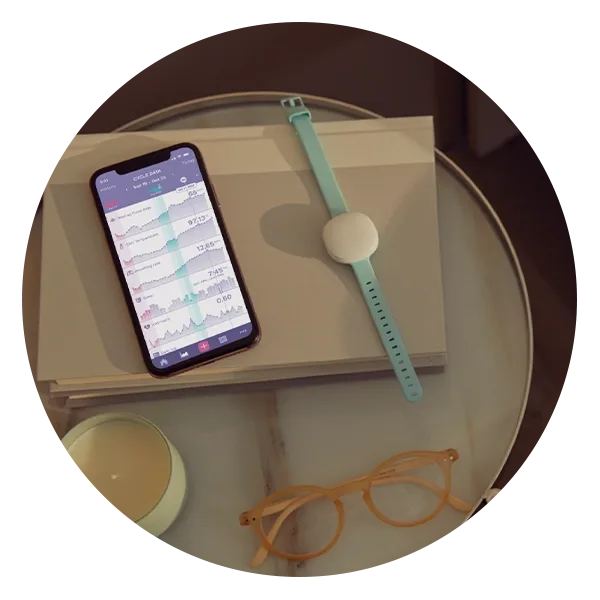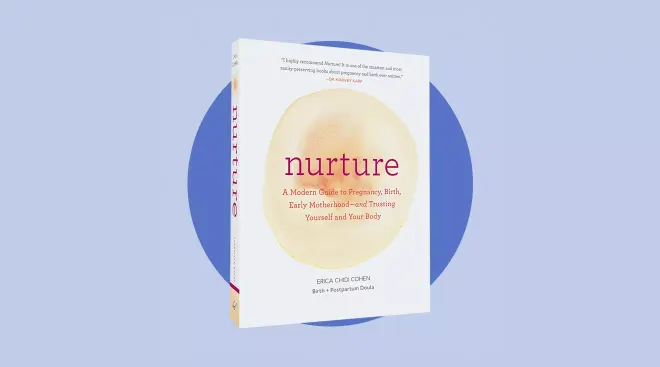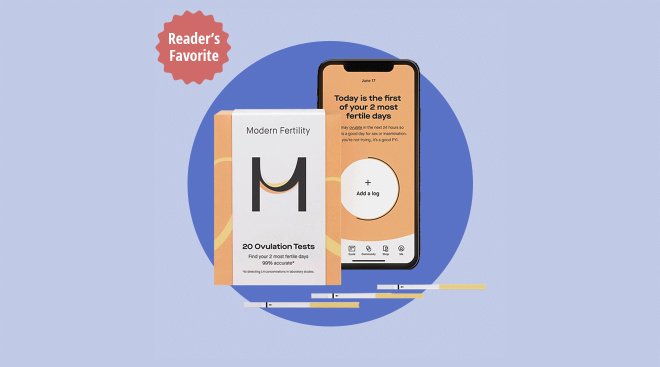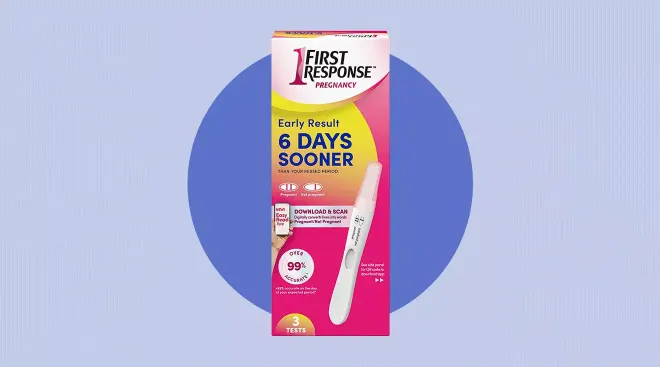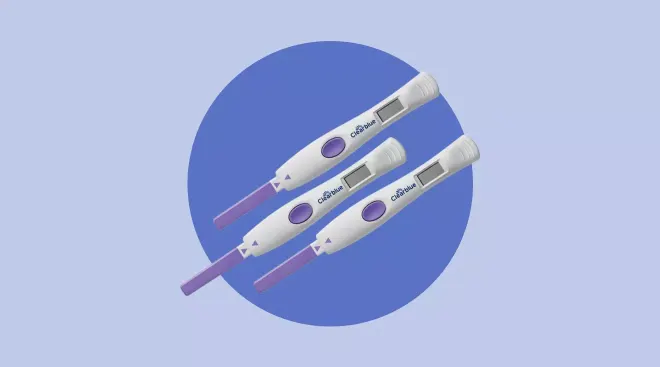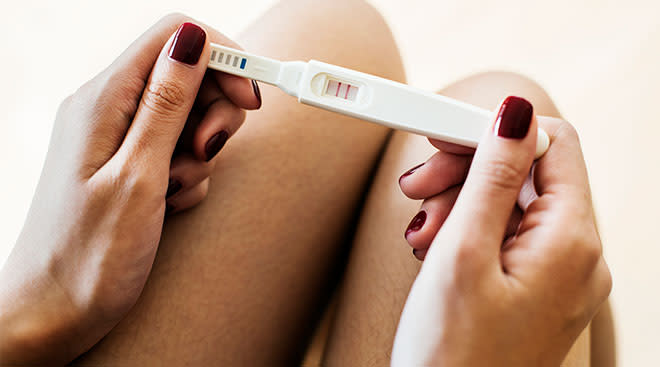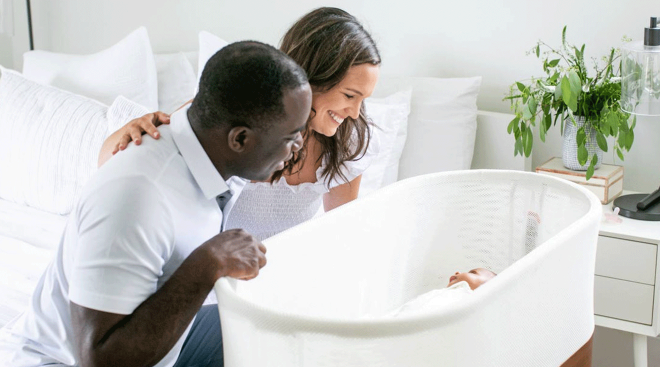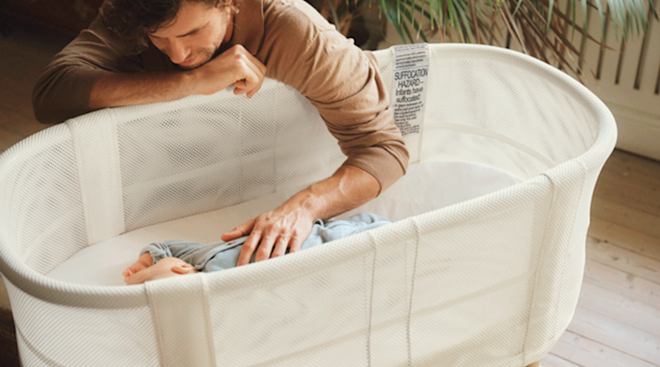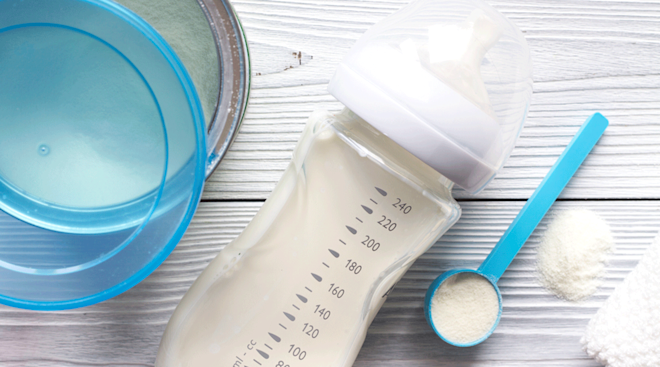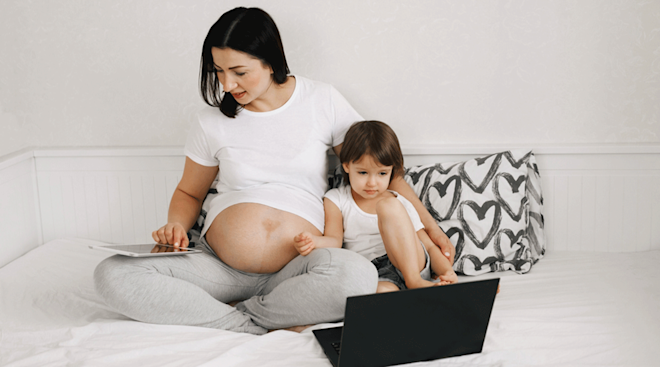Track Your Fertility Naturally With a Basal Thermometer
Trying for a baby? The journey to conception is akin to a rollercoaster—with dizzying highs and stomach-churning lows—but the end result is so worth it. While there’s plenty of luck involved, nailing down a precise ovulation window gives you the best chance of a positive pregnancy test result. While you can use ovulation predictor kits or fertility monitors, charting your menstrual cycle allows you to track your most fertile days and get down to business. If counting isn’t your strong suit, why not give the basal body temperature (BBT) method a try?
The BBT method involves taking your temperature every morning using a basal thermometer. These oral thermometers measure your body temperature at rest using small increments for an accurate read. Curious to learn more? Whether you’re trying to conceive for the first time or hope to use natural family planning to space out pregnancies, here find essential information on basal thermometers—plus a few options available to buy online.
A basal temperature refers to “the resting internal temperature of our bodies,” says Sara Twogood, MD, a board certified ob-gyn in Los Angeles and co-founder of Female Health Education. Designed for people trying to conceive, a basal thermometer is a highly-sensitive oral thermometer that measures this baseline temperature. “By checking BBT every day (with a specific thermometer that can pick up these 0.1 degree Fahrenheit fluctuations) someone can confirm they’ve ovulated,” explains Twogood. However, she notes that the BBT method won’t help you predict when ovulation occurs, it simply confirms that it’s happened. It’s only once you’ve tracked ovulation over the course of several months (a task a fertility tracking app can help with) that you may be able to get an idea of when in your cycle ovulation typically occurs.
Basal body temperature may increase every so slightly—typically up to 0.5 of a degree—after ovulation. While you could use a regular thermometer to get a general read, the Cleveland Clinic says that a basal thermometer is best for tracking temperature spikes as it shows two decimal places; whereas regular thermometers typically only show one. As basal temperature spikes are minor, it’s important to take consistent reads every day to track changes to your cycle over time. The Mayo Clinic recommends taking your temperature first thing every morning before you get out of bed. Then write down your daily basal thermometer or make note of it on a graph, fertility tracker or app.
The most important thing to consider when buying a basal thermometer is accuracy. Aside from this essential factor, they should be easy to use and budget-friendly. Keep reading to find out more:
- Ease-of-use. Remember you’ll use this gadget every day, so it’s important to buy a thermometer that’s easy to use. Some options will beep or light up once your temperature has been input, while others use Bluetooth technology to automatically add readings to a fertility tracking app. Our top tip? Opt for a basal thermometer with a built-in light and an easy-to-read digital display.
- Associated costs. Prices for a basal thermometer start at just $10, making BBT one of the most affordable family planning methods out there. However, it’s important to note that some services charge a subscription fee for the tracking apps that accompany a basal thermometer. You may also need to factor in the cost of batteries, although they won’t need to be changed too often.
Remember your conception journey is unique to you and other factors—like stress, illness or your sleep cycle—can impact body temperature meaning the BBT method may not suit everyone.
Now that you’ve gotten to grips with the basics of BBT, browse our pick of the best basal thermometers on the market.
Overall best basal thermometer
- Automatically syncs to the app
- Accurate to 1/100 of a degree
- Other ovulation symptoms and tests can be logged in the app
- Can take up to two minutes to log a temperature reading
- Battery lasts approximately three months
In order to accurately track your ovulation cycle, you’ll need to take a basal temperature reading as soon as you wake up. Not a morning person? We hear you Mama. With the Easy@Home Smart Basal Thermometer you can take a quick measurement and then fall straight back to sleep or get on with your day without having to scramble for a pen and paper or record anything on a complicated fertility graph. There’s no need to time your reading, once the thermometer has logged your data a confirmation beep sounds the alarm. The thermometer is synced with the Premom app via Bluetooth, which automatically logs your temperature and creates a chart to pinpoint your most fertile days. The thermometer itself stores up to 30 reads, but you can add unlimited temperature readings to the app’s cloud storage. Better yet, it’s super precise and can pick up incremental temperature changes to 1/100 of a degree. Other standout features include a large backlit screen that displays your body temperature plus the date and time.
Digital display: Yes | Automatic tracking: Yes | Read time: 60 to 120 seconds
Best FDA-approved basal thermometer and app
- App provides a daily fertility status
- Works with irregular cycles
- FDA cleared and CE marked
- Paid subscription service
- Results must be added to the app manually
- It takes a little while for the app to track your cycle. At first, the algorithm mostly displays red (aka fertile) days but this may not be accurate
Worried about misinterpreting your basal temperature chart? Give Natural Cycles a try. While nothing is foolproof, this FDA-approved fertility monitoring app is a great option for beginners. With an annual subscription to Natural Cycles you’ll get a basal thermometer and access to the app that uses a state-of-the-art algorithm to track your cycle. Each morning take your temperature and add the reading into the NC° app. After inputting your temperature, you’ll get a fertility status for the day. This is either green (not fertile) or red (go ahead and get baby-making!). Like to plan ahead? A color-coded graph feature makes it easy to identify your fertile window at a glance, so you can time sex and conceive faster.
Digital display: Yes | Automatic tracking: No | Read time: Unknown
Best quick-read basal thermometer
- Affordable price point
- Takes a reading in 60 seconds
- Thermometer records your last temperature
- No corresponding fertility tracking app
Take the fuss out of daily temperature reads with this basal thermometer. It has a small tip that warms up quickly for a 60-second reading (that’s faster than any other option on the market!). Once the measurement is ready to go the thermometer emits a soft beep that won’t disturb anyone else sleeping in the room with you. The temperature is accurate to 1/100 of a degree and the basal thermometer remembers your last taken temperature, just in case you forget to jot it down.
Digital display: Yes | Automatic tracking: No | Read time: 60 seconds
Best FDA-approved wearable basal thermometer
- FDA approved
- App tracks your cycle and other physiological factors
- Automatically records your basal temperature throughout the night
- High price point
Want to build an overall picture of your fertility? Consider a wearable basal thermometer. This option by Ava Fertility is the only FDA-approved fertility tracking bracelet. It has built-in sensors at the wrist that measure your basal temperature, an accelerometer that tracks your sleep stage and a tracker that captures your heart, pulse and breathing rate, plus other variables. This allows it to detect which phase of the menstrual cycle you’re in. Using Ava Fertility couldn’t be easier, simply wear the bracelet at night and sync with the app when you wake. The app then logs your data, displays your current cycle status and builds a comprehensive fertility report that you can download and review with your doctor.
Digital display: No | Automatic tracking: Bracelet automatically records data but the information needs to be synced with the app every morning | Read time: Unknown
We get it—the path to parenthood can feel overwhelming. But understanding your menstrual cycle can help you feel empowered when it comes to all things family planning. That’s where a basal thermometer comes in handy. To streamline your decision-making process, our goal is to do the bulk of the research for you, so you don’t have to spend hours scrolling through online retailers. We do this by considering a list of criteria when sourcing basal thermometers, including ease of use, tracking options, value and, last but definitely not least, accuracy. This way you can count on getting the best bang for your buck, while also having a dependable family planning method that meets your needs.
To decide which basal thermometers are the best options on the market, we leverage our familiarity with leading TTC brands to make sure items are from reliable manufacturers. We read user reviews to get the low-down on how these products work for parents-to-be, and typically don’t consider anything with less than an average four-star rating. And since many of us are also parents, we rely on our writers’ and editors’ experience using these products during their own conception journeys.
To make sure we’re highlighting products that are safe and effective, we spoke with an ob-gyn to understand essential features to keep top of mind when you’re shopping. We also read up on the science behind basal temperature tracking.
Interested in learning more about our editorial process? Read about how our team develops and reviews all articles here.
Expert sources:
Sara Twogood, MD, is a board certified ob-gyn in Los Angeles and co-founder of Female Health Education. She’s also the author of LadyParts blog, which covers topics relating to fertility and pregnancy and is on the medical board for the period tracker app Flo.
Cleveland Clinic, Basal Body Temperature, December 2022
Mayo Clinic, Basal body temperature for natural family planning, February 2023
Please note: The Bump and the materials and information it contains are not intended to, and do not constitute, medical or other health advice or diagnosis and should not be used as such. You should always consult with a qualified physician or health professional about your specific circumstances.
Plus, more from The Bump:
Navigate forward to interact with the calendar and select a date. Press the question mark key to get the keyboard shortcuts for changing dates.

































